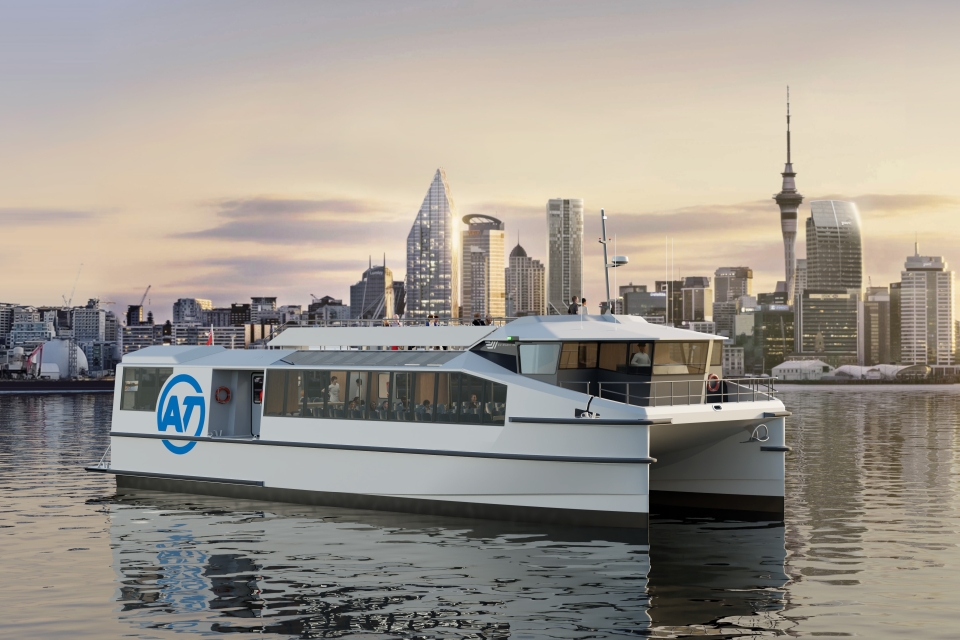ABB has secured a contract with Auckland Transport to deliver the maritime world’s first megawatt charging system (MCS). It will be used to recharge electric ferries using the same interface as trucks and airplanes.
Lowering the barrier to entry, the standardised and highly adaptable system is expected to improve electric vessel competitiveness against fossil-fuelled counterparts.
Also read: Damen gets ABB on board for ASW Frigate project
Mission Electric
As part of its Mission Electric initiative, Auckland Transport (AT) has ordered two 200-seat all-electric ferries and two 300-passenger hybrid-electric ferries and is expected to become the largest electric ferry fleet operator in the Southern Hemisphere by 2030.
Replacing conventional, diesel-operated ferries, the new ferries are estimated to help AT cut diesel use by 1.5 million litres, and CO2e emissions by 4000 metric tonnes per year, equivalent to the annual emissions generated by about ninety diesel buses.
While ferries carry only six per cent of public transport users in Auckland, their diesel engines produce twenty per cent of the city’s public transport greenhouse gas emissions. New Zealand has set decarbonisation goals by including a 2050 net-zero emissions target in its Zero Carbon Act.
Also read: How ABB powers Samskip’s new hydrogen-fuelled container ships
Charging systems
Given its responsibility for public transport infrastructure around the Hauraki Gulf, AT has chosen to electrify its ferry network using the CharIN megawatt charging system standard.
ABB will work with local partners to deliver, engineer and install five complete charging solutions during 2024 and 2025 at several ferry terminals. Each system will feature a pair of 1.65 MW chargers, consisting of a transformer, ACS880 converters, MCS plugs and cable management on the ferry pontoons.
The chargers will deliver over 3 MW of direct current (DC) power to sustain the short turnarounds and high-power demands needed to maintain an efficiently operated ferry fleet. The connectors will be handled by crew during passenger turnarounds.
Standardised plug-in interface
The Auckland installation will also be the first MCS supplied by ABB to benefit from the standardised plug-in interface, although the group has been delivering shore-to-ship power for over twenty years since an initial contract with Princess Cruises in Alaska.
The Auckland solution will be similar in charging capacity to ABB’s project to support ten all-electric ferries for public transportation provider Transtejo Soflusa in Lisbon, Portugal.
Picture: EV Maritime EVM200 ferry for Auckland Transport (by EV Maritime Auckland Transport).
Also read: VIDEO: ABB reveals propulsion concept that mimics whale tail








